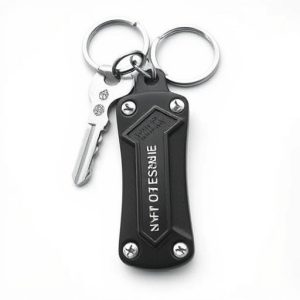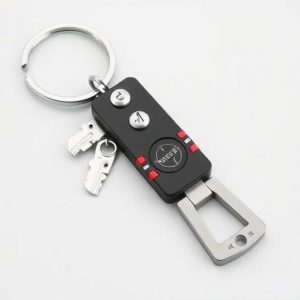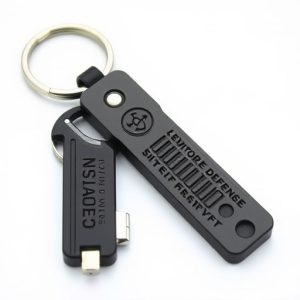Navigating State Guidelines: Legal Carry of Defensive Keychains
In the US, laws around defensive keychains vary state-by-state, emphasizing 'lawful purpose…….
In the US, laws around defensive keychains vary state-by-state, emphasizing 'lawful purpose' and concealed weapon restrictions. To legally carry a keychain weapon, understand your state's regulations regarding specific types (e.g., pepper spray, knuckles, flashlights) and required permits. Choose durable materials like stainless steel or titanium for reliability in critical situations, ensuring longevity, corrosion resistance, and sharp blade edges. Stay informed about local laws to defend yourself within legal boundaries.
“Uncover the intricacies of defensive keychain legal carry guidelines in the United States, navigating the diverse state-by-state laws that shape self-defense rights. This comprehensive guide delves into the essential components of legal carrying, focusing on durable materials that ensure both safety and effectiveness. From robust material choices and rigorous testing methods to best practices for carrying and storage, discover the key considerations for responsible ownership of defensive keychains, empowering you with knowledge in the pursuit of personal security.”
- Understanding Defensive Keychain Legal Carry Guidelines in the United States
- – Overview of state-by-state laws and regulations
- – Key considerations for legal carrying of defensive keychains
Understanding Defensive Keychain Legal Carry Guidelines in the United States
In the United States, defensive keychains designed as personal protection devices are subject to specific legal carry guidelines that vary by state. Understanding these regulations is crucial for those considering carrying a keychain weapon for self-defense. The first step involves familiarizing yourself with your state’s definition of a ‘lawful purpose’ and the specific requirements for carrying a concealed weapon, including any restrictions on size, capacity, and type of device.
One key aspect to consider when choosing a defensive keychain is selecting durable materials that ensure reliability in critical situations. High-quality metals like stainless steel or titanium are popular choices due to their resistance to corrosion and impact. Additionally, advanced materials such as ceramic or composite materials offer enhanced durability and can withstand extreme conditions, making them ideal for everyday carry and emergency preparedness.
– Overview of state-by-state laws and regulations
In the United States, the legal landscape regarding defensive keychains or personal defense weapons varies significantly from state to state. Each jurisdiction has its own set of regulations and restrictions that dictate what types of self-defense tools are permissible for carry, as well as where and how they can be used. For instance, some states allow only certain types of durable materials for keychain weapons, such as non-lethal options like pepper spray or knuckles, while others may permit more diverse choices, including tactical flashlights or mini knives.
Understanding these state-by-state laws is crucial for ensuring compliance and safe carrying practices. Residents interested in obtaining a defensive keychain should research their local regulations to comprehend the specific requirements, restrictions on size, capacity, and types of weapons allowed, as well as any necessary permits or licensing. This knowledge enables responsible citizens to defend themselves while adhering to legal boundaries, choosing suitable durable materials for their keychain weapons accordingly.
– Key considerations for legal carrying of defensive keychains
When considering the legal carry of defensive keychains, several key factors come into play to ensure safety and compliance with local regulations. One of the primary considerations is the construction and materials used. Opting for a keychain made from durable materials like high-grade stainless steel or aluminum alloy guarantees longevity and reliability in an emergency situation. These materials are resistant to corrosion and impact, making them suitable for self-defense purposes.
Additionally, the design and functionality of the keychain weapon should be carefully evaluated. Features such as a sharp, reliable blade edge and a secure locking mechanism are essential. Look for designs that allow for quick deployment, ensuring you can access your defense tool efficiently when needed. Remember to familiarize yourself with the specific laws in your state or region regarding the legal carrying of self-defense keychains.
In navigating the complex landscape of defensive keychain legal carry guidelines across the United States, understanding your state’s specific regulations is paramount. While these compact self-defense tools offer a unique blend of portability and potential protection, adhering to legal constraints is essential. By prioritizing durable materials for keychain weapons and familiarizing yourself with key considerations, you can ensure compliance while potentially enhancing personal safety. Remember, responsible ownership and informed decision-making are the cornerstones of effective defensive keychain use.


